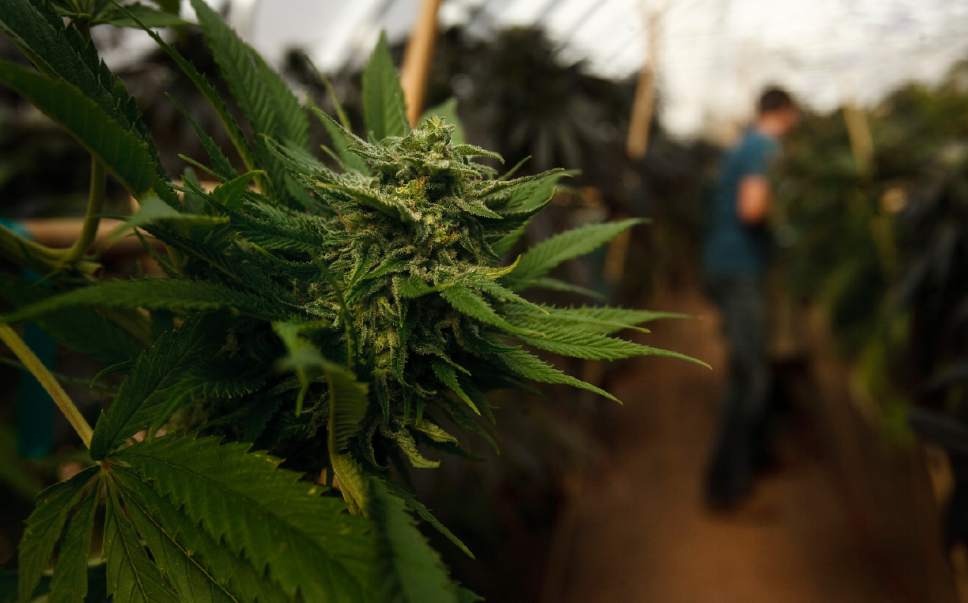This is an archived article that was published on sltrib.com in 2016, and information in the article may be outdated. It is provided only for personal research purposes and may not be reprinted.
The list of questions physicians won't be able to answer if medical marijuana use is hastily approved in Utah comes to Michelle McOmber quickly.
How much do you prescribe?
What dosage is appropriate?
How do you determine which drugs might interact with it negatively?
The Utah Medical Association supports research of the drug in Utah, said McOmber, the group's CEO, but it doesn't "want to skirt the process — as this is a public safety process — on how to use the medicine in as safe a manner as possible."
McOmber spoke Wednesday at a Health and Human Services Interim Committee meeting during which lawmakers presented medical marijuana proposals they intend to introduce next session. One such proposal, which McOmber said the association supports, would allow for expanded research into medical marijuana in Utah.
Rep. Brad Daw, R-Orem, presented the proposal Wednesday, saying there "is a really clear lack of good-quality, high-level research on what cannabis-based medicine is used for."
The proposal would allow institutional review boards to conduct human-based research on this type of medicine. Researchers could get their supply a number of ways, including by importing cannabis across state lines.
Also discussed Wednesday was a proposal that would allow medical marijuana use for various types of conditions and another that would outline the regulatory framework if medical marijuana becomes legal.
State lawmakers tried to legalize medical marijuana this year, but the proposal to permit full-plant cannabis use failed in the legislative session's final hours when legislators found that there was no money to implement the program.
Lawmakers did, however, pass a law in 2014 that allows Utahns with severe epilepsy to import whole-plant cannabidiol extracts from states where medical marijuana is legal.
As of September, 25 states and Washington, D.C., have legalized medical marijuana in some way, according to the National Conference of State Legislatures (NCSL).
But Glen Hanson, director of the Utah Addiction Center at the University of Utah, agreed with McOmber on Wednesday, saying the state needs to slow down and look at the science to establish reasonable policies.
"Once we let the genie out of the bottle, it will be really hard to put it back," Hanson said. "You just have to look at the tobacco industry and the impact it's had on society …. Even though tobacco kills almost half a million people every year we cannot take it off the streets and make it illegal again."."
Kevin Sabet, director of the University of Florida's Drug Policy Institute, also used the tobacco industry to illustrate the potential problems with marijuana use, but he was speaking about legalization of the drug for recreational use during a Wednesday night debate at the U.'s S.J. Quinney College of Law.
The marijuana industry "is copying the playbook of another industry: the tobacco industry," Sabet said. "You have this massive industry that relies on addiction ... and the only way they're able to make money is if you have a lot of people using the substance."
As of September, four states and Washington, D.C., had legalized marijuana for recreational use, according to the NCSL.
But Paul Butler, a Georgetown University Law Center professor debating Sabet on Wednesday, argued that most people do not end up as addicts, and for the small percentage who do, "treatment works better than punishment."
Both agreed that the war on drugs has failed, and Butler spoke in favor legalization.
Sabet said he didn't want to criminalize marijuana, but he didn't want to encourage its use either — especially because kids are being targeted.
The country needs "to be a lot slower in contemplating what we're doing, rather than the rush we're taking now," he said.
Twitter: @alexdstuckey



